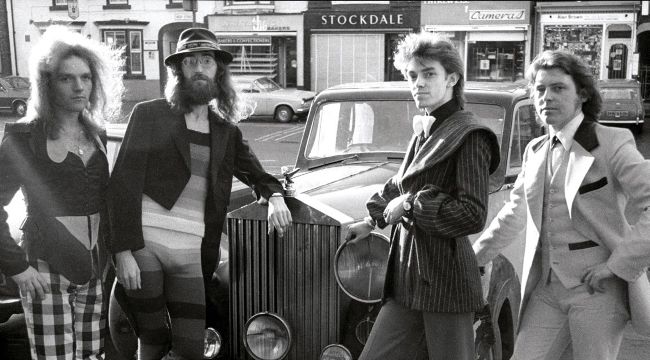THE INTERVIEW BILL NELSON
Every month we get inside the mind of one of the biggest names in music. This issue it’s Bill Nelson. The Yorkshire-born vocalist and musician launched his solo career in the early 1970s just before Be-Bop Deluxe started gathering momentum. As bandleader, he steered them through several line-ups and styles before dissolving the group to form Red Noise. Post Be-Bop, he turned his hand to producing and has also built up an impressive solo career. He looks back on some of his highs and lows, and explains why he decided to revisit Live! In The Air Age.
Words: Julian Marszalek
Be-Bop Deluxe were an anomaly right from the start. Along with Sparks and the Sensational Alex Harvey Band, they were one of those rare groups that defied easy categorisation. You would need to draw a Venn diagram of prog, glam and new wave to find a place for Be-Bop Deluxe to comfortably sit in.
Over the course of five everevolving studio albums and one live document, Be-Bop Deluxe didn’t so much make sense of their present as anticipate the future. In leader Bill Nelson, they possessed a frontman who stretched the possibilities of the guitar both on stage and in the studio. His restless nature and desire to continue moving forward led him to dissolve the band and work within the fluid format of Red Noise before setting up his own label and lending his production skills to a variety of post-punk luminaries.
Nelson’s ferocious work ethic has seen a vast output of selfreleased material that must make less productive acts blush. With 1977 album Live! In The Air Age re-released and upgraded to a 16-disc box set, the softly spoken Bill Nelson casts a rare look over his shoulder to discuss a very idiosyncratic career.
Was music a feature at home?
Yes, it was. My father was a semiprofessional saxophonist. He had a big band in the late 40s and early 50s and so I heard a lot of swing music. Benny Goodman and Glenn Miller were played a lot around the house. When I was eight years old he actually tried to teach me to play the saxophone, but I didn’t take to it. I had a bit of a difficulty reading music, so he kind of gave up on me; he didn’t think I’d make a musician. But then, when I was about nine or 10, my brother had been bought a little toy guitar for Christmas and I figured out how to play The Third Man theme. I decided then that perhaps there was hope for me after all!

Dapper gents: fashion was important for Be-Bop Deluxe.
PRESS: BE-BOP DELUXE/CHERRY RED
When I was at school I met a fellow pupil who was also at the same stage as myself and the two of us would get together at each other’s parents’ houses on alternate nights and try to figure things out. Basically, putting records on that we liked – the Ventures or the Shadows and Duane Eddy, who was a huge influence – and then picking the notes out. We sort of propped each other up for a while and actually, he eventually became the rhythm guitarist in the first line-up of Be-Bop Deluxe.